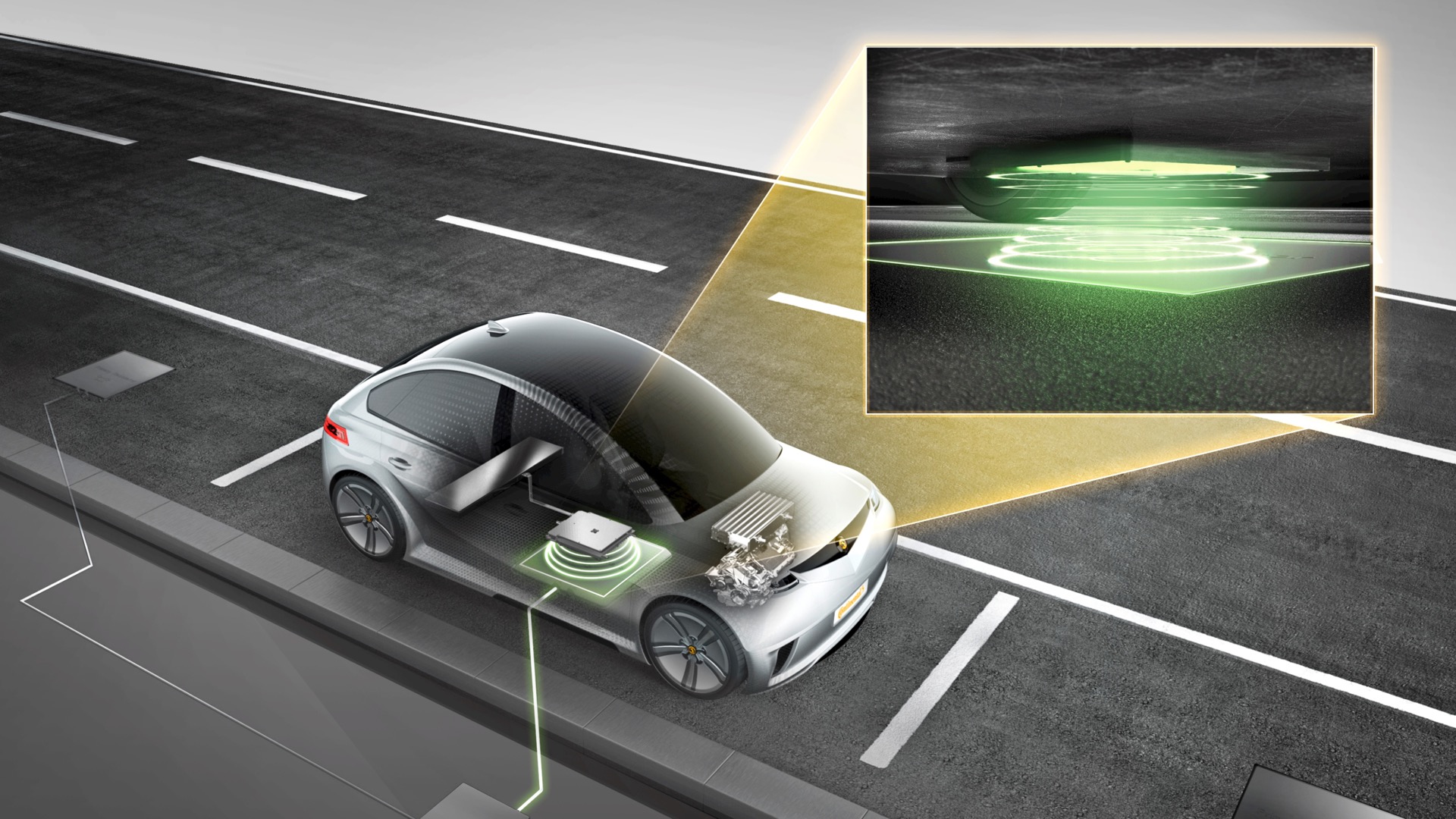

With tons more electric cars anticipated to hit the world’s roads in the next decade, companies are getting serious about wireless charging. Qualcomm recently unveiled a system that can be embedded in road surfaces; now Continental has revealed one of its own.
Like most other wireless-charging systems, Continental’s uses inductive charging. A plate on the ground and a plate mounted to the underside of the car each contain electric coils, which allow them to pass power between them through an electromagnetic field. For this to work, however, the two plates must be precisely aligned. To help achieve that, Continental’s system provides cues to the driver to help position the car. Once the vehicle is in place, the system automatically activates—which, Continental notes, adds a greater degree of convenience to the process. Charging status is displayed inside the vehicle, just like with conventional plug-in charging.
Because drivers simply have to pull into a parking spot to start charging, Continental believes its wireless system will encourage drivers to charge more often. Not having to fuss with a charging cord may be the only thing that makes charging this way worthwhile to drivers, however. With a charging rate of 11 kilowatts, Continental estimates the system can add one kilometer of range per minute. That means 30 minutes of charging adds about 18 miles of range. (Compare that to much more powerful DC fast-charging stations, like Tesla’s Superchargers, which can charge most electric cars to 80 percent battery capacity in the same amount of time.)
Wireless charging is convenient than plugging in, but the question is whether drivers would prefer that convenience over a wired charging station that gets them more range faster. At the same time, the people installing these stations will have to compare the cost of embedding charging plates in the ground, or the greater power consumption and upfront costs of DC fast-charging stations.
It’s also worth noting that, while many electric cars are already equipped for DC fast charging, that isn’t the case with wireless charging. Some companies sell aftermarket kits, but the only cars so far confirmed to have wireless charging from the factory are the Mercedes-Benz S550e and BMW 530e iPerformance plug-in hybrids.
For electric cars to become mainstream, charging infrastructure must both expand and improve in quality. Between wireless charging and DC fast charging, the technology to make charging more convenient exists…but many questions about implementation remain unresolved.